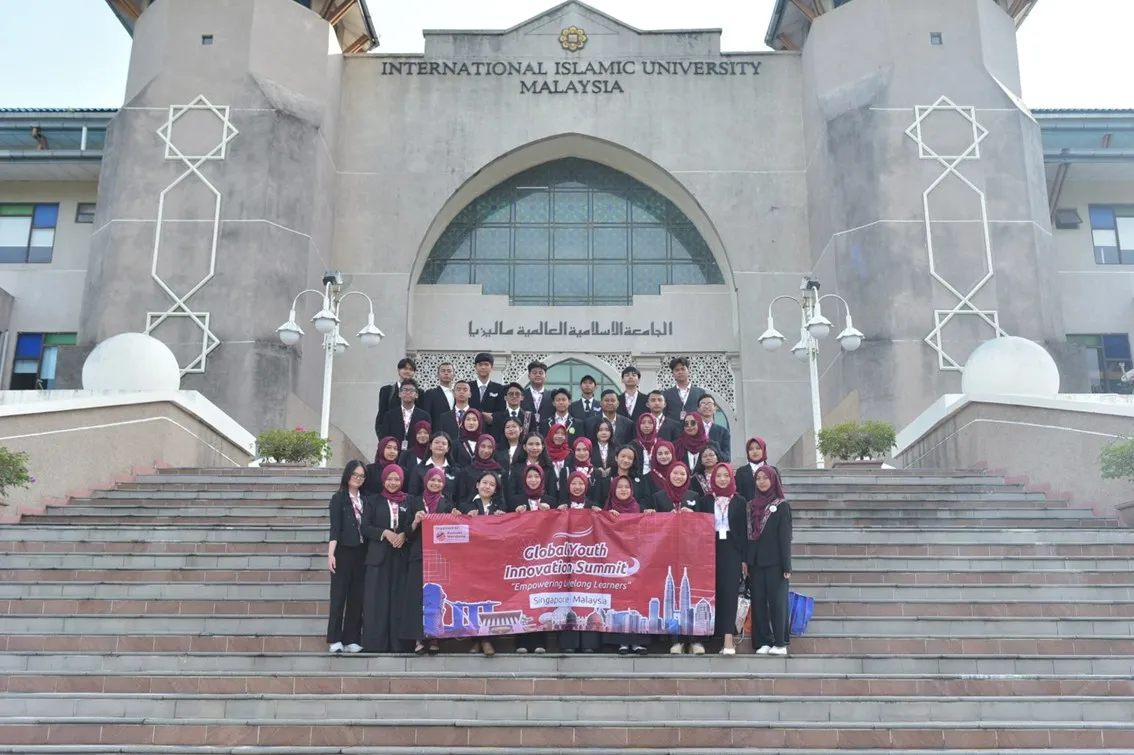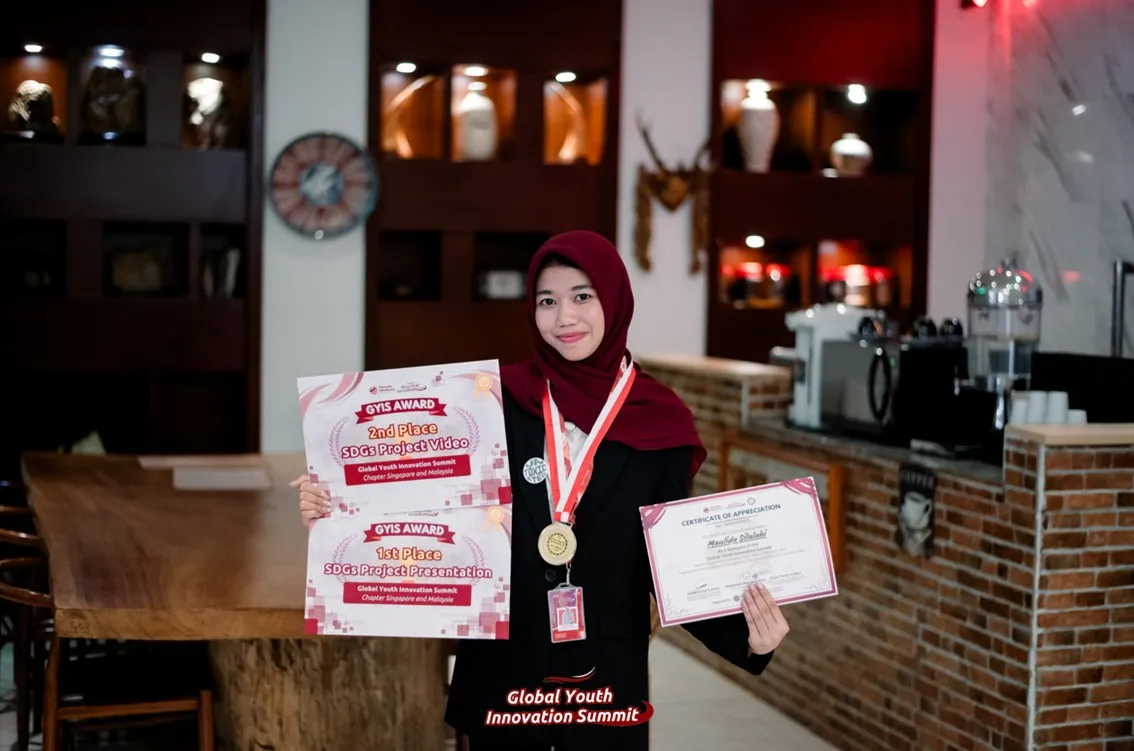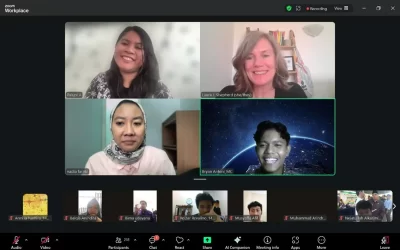The Global Youth Innovation Summit (GYIS) is more than just a competition; it is a strategic platform enabling young people to contribute to international diplomacy. From June 15–18, 2025, Maulida Silalahi, a student from the Department of International Relations, Faculty of Social and Political
Sciences (FISIP) at Undip, participated as a delegate in the Global Youth Innovation Summit (GYIS) Chapter 8, held in Singapore and Malaysia. This international forum brought together over 40 young individuals from diverse backgrounds to discuss pressing global issues, particularly those related to achieving the Sustainable Development Goals (SDGs).
This participation not only highlights the academic quality of Undip students but also affirms the diplomatic and leadership capabilities of Indonesia’s younger generation. The GYIS program extended beyond seminars and discussions, featuring an SDGs Project Pitch competition that challenged participants to present innovative, solution-driven ideas for sustainable development. In this forum, Maulida Silalahi was not merely an attendee; she distinguished herself by securing two prestigious awards: 1st Place in the SDGs Project Presentation and 2nd Place in the SDGs Project Video. These achievements solidify the fact that Undip students can compete on the global stage, simultaneously enhancing the university’s reputation within the international academic community.
Beyond the competition, the event also served as a significant international networking opportunity. Through visits to the National University of Singapore (NUS)—the top-ranked university in Asia—and the International Islamic University Malaysia (IIUM), a university renowned for its focus on sustainability, the delegates gained new insights into how higher education institutions drive global development. Furthermore, the Heritage and Cultural Tour session enriched participants’ understanding of Southeast Asia’s cultural diversity, which is crucial for fostering cross-national solidarity.

From an analytical perspective, student involvement in forums like GYIS has broader implications. This case demonstrates that youth can be effective non-state actors in international diplomacy. Moreover, the accolades won prove that the intellectual capacity and innovative spirit of Indonesian youth are beyond doubt. Ultimately, this engagement directly contributes to the university’s internationalization agenda, as outlined in its World Class University program.
Looking ahead, student participation in global forums should not be limited to individual accomplishments. It must evolve into a collective asset that strengthens Indonesia’s role on the international stage. With continued support from the faculty and university, Undip must actively encourage its students to engage in similar international events. This will ensure that the contributions of youth become more structured, sustainable, and impactful for the nation.





0 Comments